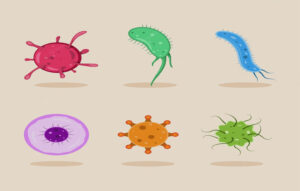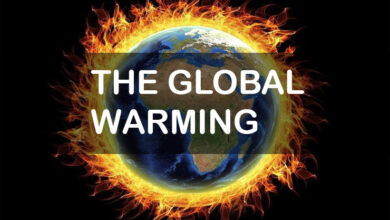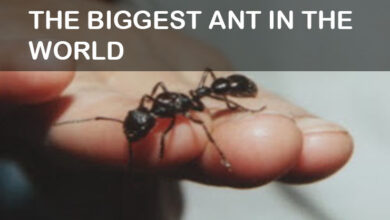Viruses: what they are and how to protect them
See how viruses spread and steps you can take to prevent viral illness. Read this article for more information
What are viruses?

Viruses are small organisms that can cause diseases in humans and animals. They are made up of a protein capsule and genetic material, and their reproduction occurs inside the host’s cells. However, there are various types of viruses, including the coronavirus, which has been a global concern since the beginning of the pandemic in 2020.
Are viruses living organisms or not?
Although viruses can cause a range of diseases and directly affect human life, there is an ongoing debate about whether they are considered living organisms or not. Some argue that viruses are not living organisms because they do not have cells and cannot reproduce without the help of a host cell.
However, others argue that they are living organisms because they possess genetic material and are capable of reproducing and evolving. Regardless of the position one adopts, it is important to understand how viruses function and how to protect oneself from them.
Ways viruses are transmitted
Viruses are transmitted through respiratory droplets, contact with contaminated surfaces, direct contact with bodily fluids such as saliva and blood, and even through insect bites. On the other hand, it is also important to understand how viruses are transmitted to protect oneself and prevent the spread of diseases.
When does the virus start to transmit?
Viruses begin to transmit when they find a suitable host, usually through direct contact with infected bodily fluids such as blood, saliva, or nasal secretions. They can also be transmitted through the air, contact with contaminated surfaces, insect bites, or even contaminated food and water.
However, it is also essential to be aware of the symptoms of the virus and take preventive measures to reduce the risk of transmission.
When does the virus stop transmitting?
The virus can stop being transmitted when effective preventive measures are implemented, such as mass vaccination and the use of masks. In addition, social isolation and quarantine are also important to limit the spread of the virus.
However, it is important to note that each type of virus has a different period of transmissibility, and some may be transmitted even when the infected person does not show symptoms. Therefore, it is essential to follow the recommendations of health authorities to prevent the spread of the virus.
Ways to protect oneself from viruses
The best way to protect oneself from viruses is through prevention. Some measures include:
- Wash hands frequently with soap and water for at least 20 seconds.
- Use hand sanitizer when soap and water are not available.
- Cover mouth and nose with a disposable tissue when coughing or sneezing.
- Avoid touching the face with hands.
- Use face masks in public places and when near other people.
- Avoid gatherings and maintain a safe distance from others.
- Keep your home and workplace clean and disinfected.
- Maintain a healthy immune system through a balanced diet, regular exercise, and adequate sleep.
- Stay at home if sick and seek medical attention if necessary.
Importance of vaccination

Vaccination is one of the most effective measures to prevent infectious diseases caused by viruses. Vaccines help prepare the body’s immune system to recognize and fight the virus, making the individual less susceptible to contracting the disease.
In addition, vaccination also helps protect the entire community, as when most people are vaccinated, there are fewer chances of the virus spreading. It is important to follow medical recommendations and keep the vaccination schedule up to date to ensure protection against infectious diseases and contribute to public health.




